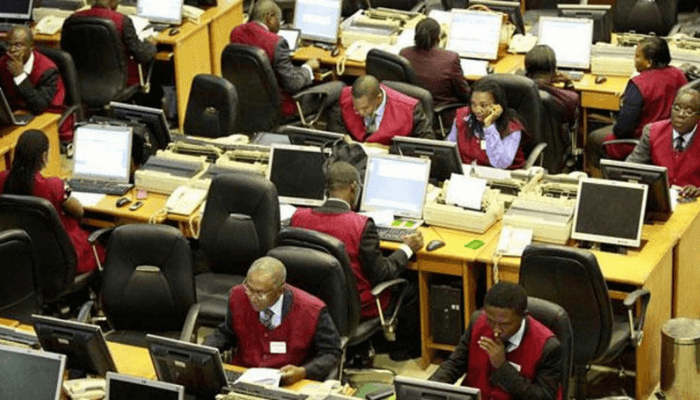Nigeria stock market emerges Africa’s best with 33.71% gain in two months

With a 33.71 percent gain in two months to February 29, Nigeria’s stock market has emerged as Africa’s best-performing stock market.
After long periods of downturn, Nigeria’s bold economic reforms lifted equities market capitalisation by N13.79 trillion in the first two months of 2024, making it to achieve the newest feat among other top African markets.
The market capitalisation of listed equities, which opened the year at N40.917 trillion, closed on Thursday, February 29 at N54.707 trillion representing N13.79 trillion or 33.7 percent appreciation.
Similarly, the NGX’s All-share index (ASI), an indicator used to measure the performance of listed firms on NGX to close at 99,980.30 basis points on Thursday, February 29, an increase of 25,206.53 basis points or 33.71 percent from 74,773.77basis points it opened for trading this year.
In the first two months of 2023, the equities market added N2.49trilliion or 8.9per cent in market capitalisation to close at N30.401 trillion on February 28, 2023 from N27.915 trillion it closed in 2022, while the NGX ASI increased by 4,555.20 basis points or 8.89 percent to 55,806.26 basis points from 51,251.06 basis points it closed in 2022.
Since the beginning of the year, the equities market has witnessed an unprecedented rally and buying interest, especially in the financial services, consumer and industrial goods sub-sector, which has continued to trigger massive bargain hunting in large company shares.
This has pushed the key performance indices and stimulated activities in the market, a development that has led to the rating of the stock market as the best-performing in Africa ahead of Johannesburg Stock Exchange (JSE), Egyptian Exchange (EGX 30) Index and The Ghana Stock Exchange.
The equities market performance in the first two months of 2024 is on the backdrop of rising insecurity, inflation, unstable foreign exchange, among other domestic macroeconomic challenges and global uncertainty.
Responding to market performance in January, the vice president, David Adnori, Highcap Securities Limited stated that investors are trading based on sentiment.
He stated that the emergence of President Bola Tinubu further energised the stock market since market participants have hope in his ability to rejig the economy and implement economy-friendly policies.
Amid hike in Monetary Policy Rate to 22.75 per cent, capital market experts stated that its impact has created sentiment trading among investors who see fixed-income market as alternative investment opportunity to hedge against double-digit inflation.
On the 22.75 per cent MPR by the Central Bank of Nigeria (CBN) Monetary Policy Committee (MPC), the stock market depreciated by N650.5 billion in February 2024.
At the first bi-monthly MPC meeting in 2024, Olayemi Cardoso, CBN Governor stated that the committee’s decisions were centred on the current inflationary and exchange rate pressures, projected inflation, and rising inflation expectations.
“Members were concerned about the persistent rise in the level of inflation and emphasized the Committee’s commitment to reverse the trend as the balance of risk leaned towards rising inflation.
“The Committee, however, acknowledged the trade-off between the pursuit of output growth and taming inflation but was convinced that an enduring output expansion is possible only in an environment of low and stable inflation,” he said.
Tajudeen Olayinka, CEO, Wyoming Capital and Partners said the stock market is now in a repricing mode because of interest rate hike and continued issuances of one-year Treasury bills at high effective yield of over 20per cent. So, we are witnessing a shift to fixed income market.
Rotimi Olubi, Managing Director, ARM Securities Limited said the high fixed-income yield is driving traction from the equities market to the fixed-income market. “We expect this to be sustained in the short term given the recent 400basis points hike in interest rate. However, this presents an opportunity for investors to enter into the equities market at a cheaper price in order to lock in on dividend payments in the coming months,” he said.
